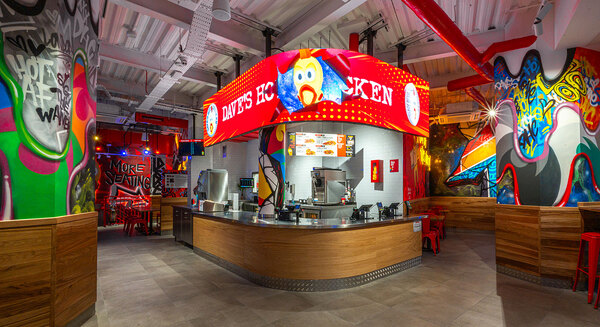Wave of redundancies as distancing and end of furlough bring business realities into focus
A wave of redundancies has begun across the hospitality sector as operators grapple with the prospect of social distancing, inflexible landlords and the winding down of the furlough scheme.
With changes to the furlough scheme beginning in August and uncertainty over how business may reopen, hotels, restaurants and foodservice operators have had to make tough decisions with regard to staffing costs.
The Restaurant Group expects to make 2,000 to 3,000 roles redundant as it considers keeping a third of its 600 sites closed, while Richard Corrigan said on Twitter this week that it was “heartbreaking” that the team at Corrigan’s Mayfair would shrink from 30 to 10, while Bentley’s Oyster Bar & Grill staff numbers would have to be reduced from 60 to 15.
The Corrigan’s HR team confirmed that the redundancy process was under way.
It said in a statement: "With no certainty from the government around social distancing or guidance from landlords on what the future may look like, like many other operators we have had to address costs and take some steps to ensure we are in a position to reopen when the time comes.
“Our family business relies on the strength and passion of our team and we are devastated to have to let some of our staff go. No decision has been made lightly and the process has involved a great deal of emotion for everyone in the company.”
Meanwhile, OYO has entered consultation with staff, and PPHE Hotel Group reported in a business update that it had “undertaken fundamental changes to our workforce”. It added that this had taken the form of “reductions in hours, voluntary payroll reductions, reducing overheads and, unfortunately, through redundancies”.
The uncertainty over quarantine and how hotels might operate when they reopen has caused InterContinental Hotels Group (IHG) to begin a consultation process at its managed hotels, too.
A spokesperson commented: “This is a very difficult time for our industry, and we have done everything to protect and retain jobs for as long as possible. Most of our hotels in the UK are currently closed and while we are looking forward to welcoming guests back when we can reopen, it will take time for travel and tourism to return to pre-coronavirus levels. As a result, we have launched a consultation to resize and restructure our hotel teams across our UK managed and leased estate, which is unfortunately likely to involve some redundancies.”
The impact on foodservice, particularly business and industry contacts serving workers who may not return to their offices for some time, is likely to be a dramatic. Genuine Dining Company managing director Chris Mitchell said that the business was working to protect jobs through a new delivery service, but that it “will inevitably have a pool of very talented chefs and front of house teams who could face job loss following the end of the furlough scheme in October”.
UKHospitality chief executive Kate Nichols said that jobs could be saved if the government adopted one-metre distancing rather than two.
She added: “It is vital that reopening is done in the right way and with continuing support so that our industry can help rebuild shattered consumer confidence, play our part in the recovery and bring the nation back together safely over the coming months.”
“If the science recommends it is safe to do so, we would urge the government to adopt the internationally recognised standard of one metre. Such a reduction would be a huge boost for the hospitality sector and prove critical to the survival of the vast majority of businesses, helping to safeguard over 800,000 jobs. It’s the difference between a venue opening at around 70% of normal revenues or at 30% with the current two-metre rule in place, which is simply unviable.”
Photo: Shutterstock




















